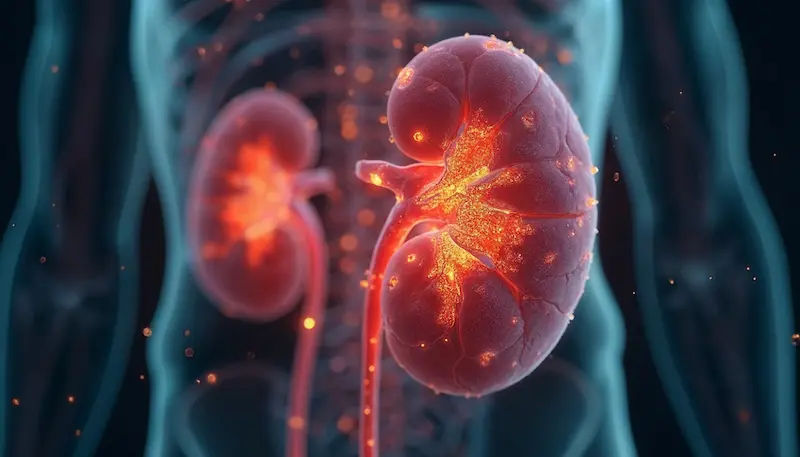Managing Cancer-Related Fatigue: Symptoms and How to Deal With It
Learn about cancer-related fatigue (CRF), its causes, symptoms, and impact. Discover effective treatments, lifestyle modifications, and coping strategies to manage CRF and improve the quality of life for cancer patients. Early intervention is key to recovery.

Written by Dr Sonia Bhatt
Last updated on 3rd Jul, 2025
Cancer-related fatigue (CRF) is a subjective experience of intense and persistent physical, emotional, and cognitive exhaustion related to cancer and its treatment. Unlike regular fatigue, CRF does not improve with rest and can linger for weeks, months, or even years after treatment is over. It is one of the most commonly cited side effects of cancer, affecting 80 to 90 percent of patients undergoing treatment.
Learn the symptoms, treatment strategies, lifestyle modifications, coping mechanisms, and more.
Cancer-Related Fatigue: Contributing Factors
Some of the factors contributing to CRF include physical, psychosocial, and treatment-related agents, like:
Cancer Therapies: Chemotherapy, radiation, and immunotherapy can also harm both cancerous and healthy cells. This disrupts normal body functions, resulting in fatigue.
Anaemia: Many cancer treatments lower red blood cell counts, which can disrupt the delivery of oxygen throughout the body.
Nutritional Deficiencies: Treatments can suppress appetite and cause nausea and gastrointestinal problems, resulting in inadequate nutrition and depleted energy.
Emotional Distress: Anxiety, depression, the stress of a cancer diagnosis, and its implications are major contributors to fatigue.
Chronic Inflammation: Cancer and its treatments can induce systemic inflammation in the body, a condition that can make fatigue worse.
CRF is different from everyday fatigue in its severity and duration. Routine tiredness gets better with rest, while chronic fatigue does not necessarily resolve, even with sufficient sleep.
It also has a disproportionate impact on a patient’s ability to perform routine tasks, even when it’s been a long time since the exertion.
Symptoms of Cancer-Related Fatigue
Usually, CRF presents itself with a mixture of physical, cognitive, and emotional symptoms, such as:
Physical Symptoms: Include chronic fatigue, muscle weakness, and low energy.
Mild Cognitive Impairment: Trouble focusing, remembering things, and slow thinking.
Emotional Symptoms: Low motivation, irritability, and hopelessness/sadness.
Consult Top Oncologist
Diagnosis Methods for Cancer-Related Fatigue
Healthcare providers diagnose CRF clinically by assessing patient-reported symptoms and their effects on quality of life using:
Self-Assessment Tools: Questionnaires such as brief fatigue inventory and fatigue symptom inventory.
Medical Evaluation: Physical exams and lab tests to exclude other diseases like hypothyroidism, infection, and electrolyte imbalance.
Cancer-Related Fatigue: Impact on Daily Life
Following is the impact of CRF on daily life:
Cancer-related fatigue results in a significant decline in endurance and strength, such that even basic tasks like walking or climbing stairs become difficult.
As a result, decreased activity over time can contribute to further deconditioning, which reinforces further fatigue.
The inability to fully overcome CRF can cause a decline in the emotional aspect of well-being, leaving the individual with feelings of increased frustration, low self-worth, and eventual depression.
Treatment and Management Strategies for Cancer-Related Fatigue
Effective management of cancer-related fatigue often consists of treating root conditions or alleviating symptoms directly:
Pharmacological Treatments: Psychostimulants (eg, modafinil) or specific antidepressant agents may ease more severe fatigue.
Anaemia Treatment: If anaemia is a contributor, blood transfusions or erythropoiesis-stimulating agents are often utilised.
Pain/Sleep: Managing chronic pain or eradicating sleep disturbances could help indirectly reduce fatigue.
Additionally, patients are increasingly seeking out integrative approaches:
Acupuncture: Research suggests that acupuncture can be beneficial in managing CRF by enhancing the flow of energy through the body and relieving stress.
Mind-body Therapies: Practices like meditation, yoga, and tai chi can induce relaxation, improve mood, and help with fatigue.
Massage Therapy: Eases up muscle tension and makes you more comfortable overall, leading to improved energy levels.
Both conventional and non-conventional methods might help improve the quality of life of patients.
Lifestyle Modifications to Deal With Cancer-Related Fatigue
With lifestyle changes like regular physical activity, CRF can be effectively reduced. Key recommendations include:
Aerobic Exercise: Walking, swimming, or cycling can boost cardiovascular health and energy.
Resistance Training: Light resistance exercises can help maintain muscle mass and prevent deconditioning.
Personalised Plans: Exercise plans can be customised according to individual abilities and guided by a doctor.
Nutritional and Dietary Considerations for CRF
When it comes to managing cancer-related fatigue, proper nutrition goes a long way. Here are a few points to consider:
A Balanced Diet: Focusing on whole grains, lean proteins, fruits, and veggies.
Hydration: Getting enough fluids to enable energy metabolism.
Dieticians: Consulting a healthcare professional can help patients manage side effects, such as loss of appetite or nausea.
Coping Mechanisms and Support for Cancer-Related Fatigue
Following are the recommended coping mechanisms and support activities for CRF patients:
Psychological therapies such as cognitive-behavioural therapy (CBT) offer tools for managing the emotional impact of CRF. This enables patients to reshape negative thought processes and practice problem-solving.
Support groups can provide an invaluable sense of community and empathy. Some organisations like the American Cancer Society and Cancer Research UK provide local and virtual communities for support and sharing of experiences and resources.
Open discussion with care providers is critical for effective CRF management. Patients should feel that they can report anything about symptoms, side effects of treatment, and the support they have or do not have.
Healthcare team members can help create individual care plans that engage the medical and psychological aspects of fatigue. This involves using a combination of approaches, including exercise therapy, nutrition therapy, and pharmacologic options.
Conclusion
Cancer-related fatigue is defined as an unusual, persistent, and debilitating fatigue that doesn’t go away even after resting. Identifying the medical condition early and appropriate management is vital to lessen its effects.
If done at an early stage, the risk for drastic physical deconditioning and emotional distress can be eliminated, and a more favourable outcome for the cancer patient can be expected. Additionally, patients should be empowered to reach out for help from their healthcare providers, community resources, and family members.
Consult Top Oncologist
Consult Top Oncologist

Dr Sunita Samleti
Oncologist
18 Years • M.D. (Pathology)- TN Medical College, Mumbai University, Mumbai, Mar 2005 M.B.B.S. Grant Medical College, Mumbai University, Mumbai, Oct 1999
Chinagadila
Apollo Hospitals Health City Unit, Chinagadila

Dr Gowshikk Rajkumar
Oncologist
10 Years • MBBS, DMRT, DNB in Radiation oncology
Bengaluru
Apollo Clinic, JP nagar, Bengaluru

Dr. Sanchayan Mandal
Oncologist
17 Years • MBBS, DNB Raditherapy, DrNB Medical Oncology
East Midnapore
VIVEKANANDA SEBA SADAN, East Midnapore

Dr.sanchayan Mandal
Oncologist
17 Years • MBBS, DrNB( MEDICAL ONCOLOGY), DNB (RADIOTHERAPY),ECMO. PDCR. ASCO
Kolkata
Dr. Sanchayan Mandal Oncology Clinic, Kolkata

Dr. Gopal Kumar
Head, Neck and Thyroid Cancer Surgeon
15 Years • MBBS, MS , FARHNS ( Seoul, South Korea ), FGOLF ( MSKCC, New York )
Delhi
Apollo Hospitals Indraprastha, Delhi
(25+ Patients)
Consult Top Oncologist

Dr Sunita Samleti
Oncologist
18 Years • M.D. (Pathology)- TN Medical College, Mumbai University, Mumbai, Mar 2005 M.B.B.S. Grant Medical College, Mumbai University, Mumbai, Oct 1999
Chinagadila
Apollo Hospitals Health City Unit, Chinagadila

Dr Gowshikk Rajkumar
Oncologist
10 Years • MBBS, DMRT, DNB in Radiation oncology
Bengaluru
Apollo Clinic, JP nagar, Bengaluru

Dr. Sanchayan Mandal
Oncologist
17 Years • MBBS, DNB Raditherapy, DrNB Medical Oncology
East Midnapore
VIVEKANANDA SEBA SADAN, East Midnapore

Dr.sanchayan Mandal
Oncologist
17 Years • MBBS, DrNB( MEDICAL ONCOLOGY), DNB (RADIOTHERAPY),ECMO. PDCR. ASCO
Kolkata
Dr. Sanchayan Mandal Oncology Clinic, Kolkata

Dr. Gopal Kumar
Head, Neck and Thyroid Cancer Surgeon
15 Years • MBBS, MS , FARHNS ( Seoul, South Korea ), FGOLF ( MSKCC, New York )
Delhi
Apollo Hospitals Indraprastha, Delhi
(25+ Patients)




